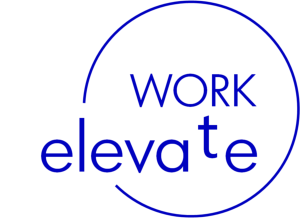
BALANCED NEEDS
Description of Categories
The first three categories of the Balanced Need Scorecard represent the primary needs of an organization: Corporate Survival-profits, finance, and funding; Corporate Fitness-productivity, quality, and efficiency; and Customer/Supplier Relations-sales, service, and product excellence. These are fundamental issues for the successful operation of every business and organization. They represent the "hard stuff" that every business has to get right in order to survive.
The next three categories represent the "soft stuff" that supports these front-line needs. They include Corporate Evolution-participation, innovation, learning, creativity and intellectual capital; Corporate Culture-vision, mission, values, and employee fulfillment; and Society and Community Contribution-social and environmental responsibility, being of service, and making a difference. In the twenty-first century, the "soft stuff" is destined to become the principal arena for determining competitive advantage.
Corporate Survival
Performance in this category is measured in terms of financial or growth indicators. The indicators may vary during the life cycle of the organization. A start-up company, for example, may set goals related to capital formation. A well-established company may focus on goals related to profit, return on assets, and cash reserves. A public company may want to measure its success by its stock price. Growth indicators in the service sector may relate to number of customers or number of outlets.
Corporate Fitness
Indicators that relate to improving systems and processes-speed, cycle time, quality, productivity, and efficiency measure performance in this category. The most important of these processes are those that affect customers, finances, and employee productivity. Thus, the time between order taking and delivery, the time between order taking and payment, and the output per employee are popular targets for improving corporate fitness. The targets are usually achieved through some form of reengineering.
Customer/Supplier Relations
Indicators related to market share, brand loyalty, customer satisfaction, and customer collaboration measure performance in this category. Indicators that relate to supplier relations are also important. The values audit instrument can be used to measure the quality of customer and supplier relations. It can also be used to measure the degree of values alignment between the organization and its customers and suppliers.
Corporate Evolution
Performance in this category is measured by indicators that relate to how well the organization is doing in generating ideas that result in product and process innovation-creating new products and services, adapting existing products and services, and generating ideas that improve internal processes. The indicators chosen should reflect the organization's goals for improving employee participation, research and development, developing an innovation pipeline, and learning and knowledge.
Corporate Culture
Indicators that relate to vision, mission and values alignment as well as employee fulfillment measure performance in this category. The Corporate Transformation Tools™ Culture Assessment instrument allows organizations to measure the degree of alignment between personal and organizational values, organizational and ideal organizational values, and actual and espoused values, as well as the strength and type of core culture. Key indicators might include the CTS index, the PROS index, and the PL index.
Society/Community Contribution
Indicators that relate to social and environmental responsibility measure performance in this category. Key indicators in this category might include the number of volunteer hours worked by employees for the local community and measures of the impact that the organization is having through its outreach programs to the local community and society at large. Programs to reduce environmental pollution and improve environmental awareness in the organization also come under this category.
Copyright © 1998 - 2001.
Cultural Transformation Tools® Barrett Values Centre
About ElevateWork
We are an international group of facilitators, trainers and coaches with a shared mission to elevate the world of work in collaboration with other like-minded, like-hearted leaders and organizations.
ElevateWork specializes in facilitating highly effective online meetings, holistic leadership mentoring and cultural change. Open Space Technology, Bohm Dialogue, online Open Space conferences, participative online meeting facilitation, Cohering Community, and facilitator training are our specialties.
